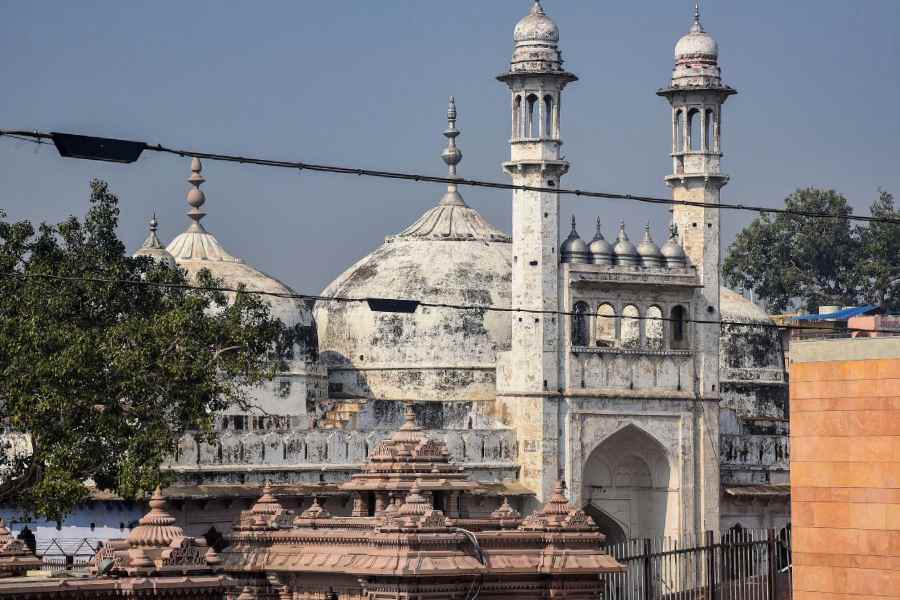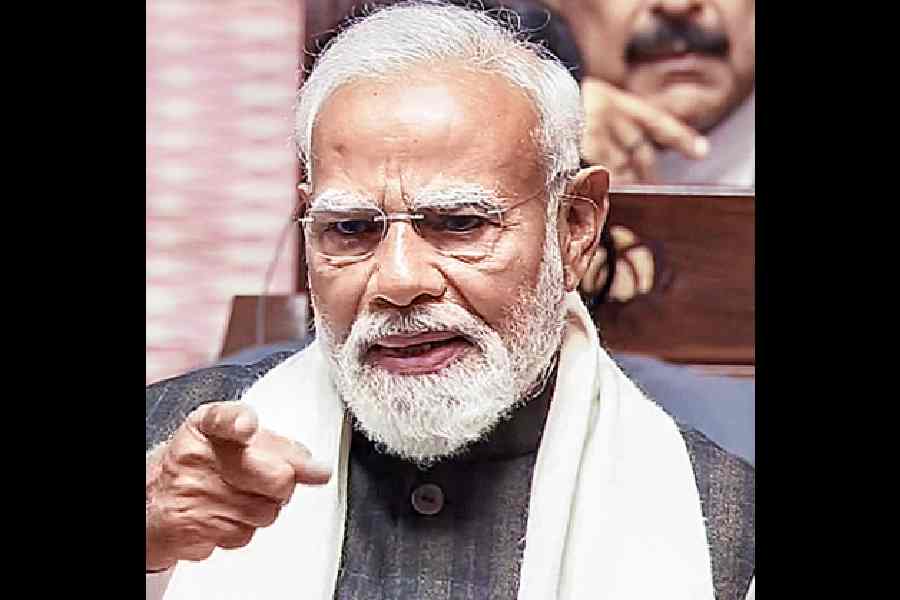The Varanasi district court on Wednesday allowed the Hindus to worship in the basement of the Gyanvapi mosque and directed the district administration to make arrangements within a week.
In his last judgement before retirement, district and sessions judge Ajaya Krishna Vishvesha said no official order had directed the putting up of barricades to prevent the entry of the Hindus into “Vyasji Ka Tahkhana” — a portion of the basement of the Gyanvapi mosque.
One needs to climb a few steps from the ground to reach the mosque, which is located to the north of the Kashi Vishwanath temple.
Sudhir Tripathi, the counsel for petitioner Shailendra Kumar Pathak, said: “The court has asked S. Rajalingam, district magistrate of Varanasi, Kashi Vishwanath Temple Trust and the Anjuman Intezamia Masjid Committee to sit together and decide how they will remove the barricade and open the area for worshipping.”
The basement was in the possession of the Vyas family till 1993 and they used to
keep puja materials there. The family used to live in an old building near the mosque but it was declared unsafe and they were shifted to a nearby house.
Pathak, who belongs to the Vyas family, had filed the petition in the district court on September 25 last year claiming that “a portion of the basement of Gyanvapi was our property and my ancestors were traditionally the priest of Gyanvapi, a holy pond where the Hindus used to worship”.
“My ancestors used to conduct puja in the pond since time immemorial. But the access to the place was blocked in December 1993 by a verbal order of the Mulayam Singh Yadav government and the members of the Vyas family were removed from there,” Pathak said.
“As the court has asked the administration to remove the barricade and give access to the Hindus to the basement within a week, we consider it a good beginning for us,” Pathak added.
Mumtaz Ahmad, the counsel for Intezamia, had opposed Pathak’s demand and said that it was a violation of the Places of Worship (Special Provisions) Act, 1991.
“Strangely, while someone filed a petition that he owned an area, the court ordered to allow the Hindus to worship there. The basement is part of the mosque and is the property of the Sunni Central Waqf Board. Things are proceeding in a way that reminds us of the title suit of the Ram Janmabhoomi-Babri Masjid case of Ayodhya,” he said.
Ahmad added that, according to the district court, the barricade was raised between Kashi Vishwanath temple and Gyanvapi mosque in December 1993 without any written order from any authority.
“We want the country to remain a peaceful place but there are people who want to push it into fire. We never expected such an order and are preparing to move the high court against it,” Ahmad added.
The inner gate of the Babri mosque was opened on February 1, 1986, by an order of a Faizabad court after petitioner U.C. Pandey argued that the Faizabad district administration, and not a court, had ordered its closure.
Tripathi said the Gyanvapi case was not a violation of the Places of Worship Act, 1991, and it was never the property of the Sunni Board.
He said: “The Muslim side failed to show any order for erecting the barricade and prevent the entry of the Hindus inside the basement of Gyanvapi.”
This case is different from the one filed by five women from Varanasi on August 18, 2021, seeking permission to worship daily Shringar Gauri and other deities in the Gyanvapi mosque compound. As the case proceeded, the Hindu petitioners demanded the right to worship in the mosque and the removal of Muslims from there. This case is underway.
The Hindu petitioners claim that Mughal emperor Aurangzeb had razed a portion of the Kashi Vishwanath temple and the Gyanvapi mosque was built over its ruins.










